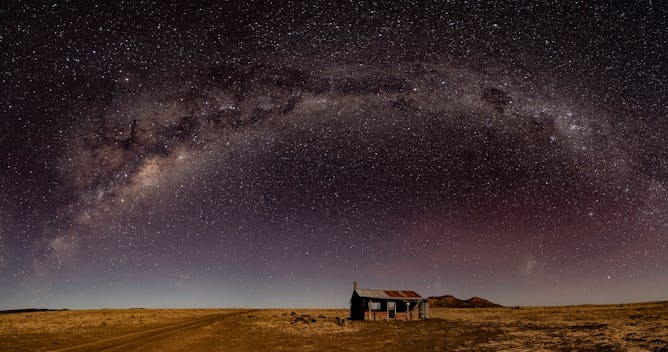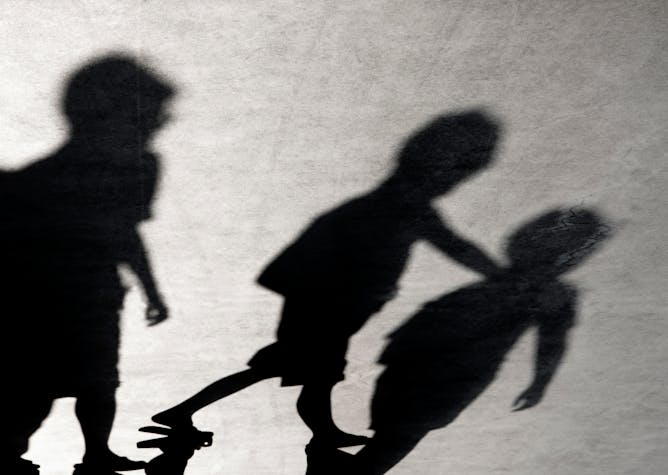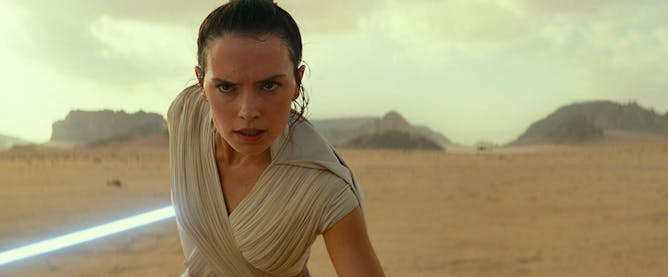|
|
|
Editor's note
|
|
As this tumultuous and fascinating year draws to a close I want to take a minute to thank you for reading and supporting The Conversation. Your interest in the work of academics published here is a personal vote for facts and evidence, and the entire team working here is deeply grateful for it.
There are plenty of cynics these days who want to tell you that we live in a post-truth world, that facts are in retreat. But you, and the flourishing of The Conversation, are living proof that isn’t true, and it need not be our fate.
In 2019 our expert articles attracted more than 380 million reads across the globe. In Australia more than 100,000 people subscribe to the Conversation’s daily email. Thousands of media outlets regularly republish our work because they value the rigour of our non-partisan approach to sharing the best evidence and thinking on any topic.
At The Conversation we only publish academics who are writing in their area of expertise and know what they are talking about. We aim to be unbiased and we ask all authors to fill in a disclosure statement to identify any potential conflicts of interest. We only ever publish with one goal, and that is to inform.
Our mission is to democratise knowledge, to redistribute information from those who have it to those who need it most. We pursue this work with vigour and never deviate from our goal.
So thank you for supporting us with your attention and for so many of you with your financial giving too. This year more than 10,000 people made personal donations to The Conversation, and that money helps us continue our work. (If you want to join this growing army of TC supporters you can do it here.)
But most important, and most inspiring, is the fact that you care enough to want to know more and seek out information from quality sources you can trust. Thanks for placing your trust in us whether you are an author, a university, a reader or a donor. We value it, we know it is precious, and we will do everything in our power to live up to it.
Have a lovely relaxing break and may you flourish in 2020.
|
Misha Ketchell
Editor & Executive Director
|

|
|
Top stories
|

Today we hear about some of the fascinating space research underway at Siding Spring Observatory – and how, despite gruelling hours and endless paperwork, astronomers retain their sense of wonder for the night sky.
Shutterstock
Sunanda Creagh, The Conversation; Cameron Furlong, The Conversation
Three hours north-east of Parkes lies a remote astronomical research facility, unpolluted by city lights, where researchers are trying to unlock some of the biggest questions about our Universe.
|

From early childhood to secondary school, your child’s negative friendships could impact their sense of self worth.
from shutterstock.com
Laurien Beane, Australian Catholic University; Michael Chambers, Australian Catholic University; Natasha Wardman, Australian Catholic University
If you suspect your child – whether they are in early childhood education and care, primary or secondary school – has a questionable friend, here are some tips on how to deal with it.
|

In the US the market for blind bag toys grew by about 60% in 2018, while total toy sales fell 2%.
www.shutterstock.com
Louise Grimmer, University of Tasmania; Martin Grimmer, University of Tasmania
Blind bag toys work through the potent combination of price, the appeal of collecting and the psychological lure of surprise.
|

Will the third film in the third Star Wars trilogy match expectations?
Disney
Stefanie Johnstone, University of Technology Sydney
From Aeschylus to The Matrix, the trilogy has a long history. But perhaps no film series has used it as successfully as Star Wars.
|
Arts + Culture
|
-
Alexander Gillespie, University of Waikato
New Zealand will pardon religious Māori leader Rua Kēnana, who was arrested more than a century ago for "moral resistance", but the pardon fails to acknowledge the miscarriage of justice.
-
Sue Green, Swinburne University of Technology
A summer exhibition of man-made craft is a rare thing - but do men really need a leg up when it comes to artistic recognition?
|
|
Politics + Society
|
-
Andrew Podger, Australian National University
While the long-awaited Thodey Report makes many sensible recommendations, the detail is often missing and the analysis weak. And the government's response rules out key reforms.
-
Michelle Grattan, University of Canberra
Michelle Grattan sits down with The Conversation's economic editor Peter Martin for a chat about the year that was, and to answer readers' questions.
|
|
Health + Medicine
|
-
Katinka van de Ven, University of New England; Kyle J.D. Mulrooney, University of New England; Natalie Thomas, University of New England
Many rural communities have experienced economic decline in recent years and have poorer access to drug treatment services. This increases the risk of drug use and overdoses.
|
|
Science + Technology
|
-
Kira Westaway, Macquarie University; Michael Westaway, The University of Queensland; Russell Ciochon, University of Iowa
Our extinct, distant cousins still lived in Indonesia 110,000 years ago.
|
|
Cities
|
-
David Levinson, University of Sydney
Most people do not know the right-of-way rules, but a starting point should be that pedestrian needs and safety take priority. Current road rules are biased towards driver convenience
|
|
Columnists
|
|
|
| |
Featured jobs
|
|
|
| |
| |
| |
| |
| |
|
|
|
|
|
|
|